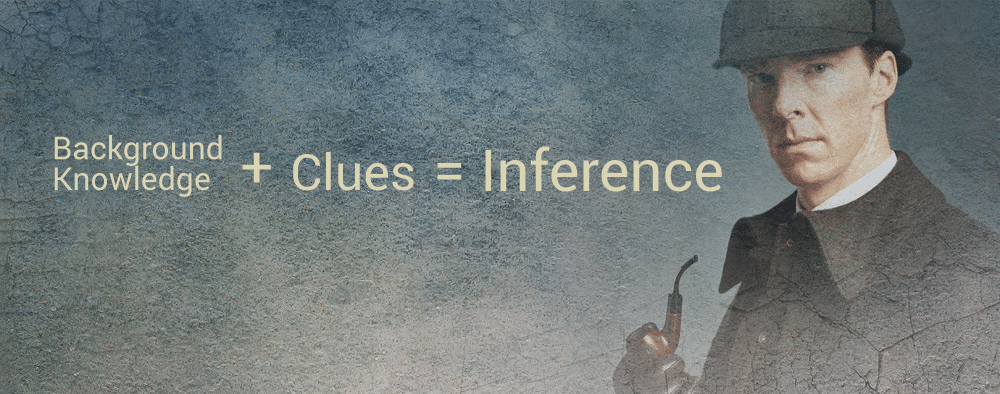From Lars Syll The model is not . . . how one determines the soundness or otherwise of a mathematical proof; it is, rather, how one determines the reasonableness or otherwise of entries in a crossword puzzle. . . . The crossword model permits pervasive mutual support, rather than, like the model of a mathematical proof, encouraging an essentially one-directional conception. . . . How reasonable one’s confidence is that a certain entry in a crossword is correct depends on: how much support is given to this entry by the clue and any intersecting entries that have already been filled in; how reasonable, independently of the entry in question, one’s confidence is that those other already filled-in entries are correct; and how many of the intersecting entries have been filled in. Yours
Topics:
Lars Pålsson Syll considers the following as important: Uncategorized
This could be interesting, too:
tom writes The Ukraine war and Europe’s deepening march of folly
Stavros Mavroudeas writes CfP of Marxist Macroeconomic Modelling workgroup – 18th WAPE Forum, Istanbul August 6-8, 2025
Lars Pålsson Syll writes The pretence-of-knowledge syndrome
Dean Baker writes Crypto and Donald Trump’s strategic baseball card reserve
from Lars Syll
The model is not . . . how one determines the soundness or otherwise of a mathematical proof; it is, rather, how one determines the reasonableness or otherwise of entries in a crossword puzzle. . . . The crossword model permits pervasive mutual support, rather than, like the model of a mathematical proof, encouraging an essentially one-directional conception. . . . How reasonable one’s confidence is that a certain entry in a crossword is correct depends on: how much support is given to this entry by the clue and any intersecting entries that have already been filled in; how reasonable, independently of the entry in question, one’s confidence is that those other already filled-in entries are correct; and how many of the intersecting entries have been filled in.
Yours truly — an avid crossword solver himself — can’t but agree.
In inference to the best explanation, we start with a body of (purported) data/facts/evidence and search for explanations that can account for these data/facts/evidence. Having the best explanation means that you, given the context-dependent background assumptions, have a satisfactory explanation that can explain the evidence better than any other competing explanation — and so it is reasonable to consider the hypothesis to be true. Even if we (inevitably) do not have deductive certainty, our reasoning gives us a license to consider our belief in the hypothesis as reasonable.
Accepting a hypothesis means that you believe it does explain the available evidence better than any other competing hypothesis. Knowing that we — after having earnestly considered and analyzed the other available potential explanations — have been able to eliminate the competing potential explanations, warrants and enhances the confidence we have that our preferred explanation is the best explanation, i. e., the explanation that provides us (given it is true) with the greatest understanding.
 This, of course, does not in any way mean that we cannot be wrong. Of course, we can. Inferences to the best explanation are fallible inferences — since the premises do not logically entail the conclusion — so from a logical point of view, inference to the best explanation is a weak mode of inference. But if the arguments put forward are strong enough, they can be warranted and give us justified true belief, and hence, knowledge, even though they are fallible inferences. As scientists we sometimes — much like crossword solvers and detectives — experience disillusion. We thought that we had reached a strong conclusion by ruling out the alternatives in the set of contrasting explanations. But — what we thought was true turned out to be false.
This, of course, does not in any way mean that we cannot be wrong. Of course, we can. Inferences to the best explanation are fallible inferences — since the premises do not logically entail the conclusion — so from a logical point of view, inference to the best explanation is a weak mode of inference. But if the arguments put forward are strong enough, they can be warranted and give us justified true belief, and hence, knowledge, even though they are fallible inferences. As scientists we sometimes — much like crossword solvers and detectives — experience disillusion. We thought that we had reached a strong conclusion by ruling out the alternatives in the set of contrasting explanations. But — what we thought was true turned out to be false.
That does not necessarily mean that we had no good reasons for believing what we believed. If we cannot live with that contingency and uncertainty, well, then we are in the wrong business. If it is deductive certainty you are after — rather than the ampliative and defeasible reasoning in inference to the best explanation — well, then get into math or logic, not science.
What I do not believe — and this has been suggested — is that we can usefully lay down some hard-and-fast rules of evidence that must be obeyed before we accept cause and effect. None of my viewpoints can bring indisputable evidence for or against the cause-and-effect hypothesis and none can be required as a sine qua non. What they can do, with greater or less strength, is to help us to make up our minds on the fundamental question — is there any other way of explaining the set of facts before us, is there any other answer equally, or more, likely than cause and effect?
